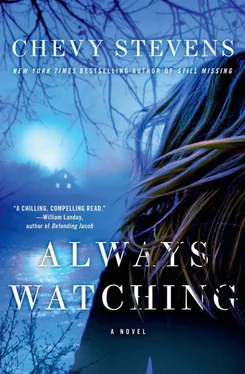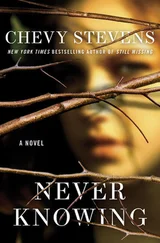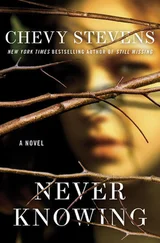I had never heard someone talking so openly about their feelings and didn’t know what to think. I had never told anyone about my own family’s struggles. I noticed my brother also studying Aaron, admiration in his face.
Aaron said, “She eventually split. We had to live with our grandfather, until he finally died.” He stared into the fire, poked at a piece of wood, his mouth a grimace. “He was a real bastard.”
He fell silent, gazing into the fire. Joy, her voice soft, said, “Where did you go after he died?”
He roused himself, blinking at her like he just remembered that he was still with people. “We lived on the streets, then we met some people and were taken into an ashram. I studied under a guru for a few years.”
One of the male members leaned forward. “You got to study with a guru? Is that how you learned to meditate?”
We’d all seen him meditating every day, and some were already joining him.
Aaron looked excited now. “It was amazing, everything he taught me, how to live a spiritual life—you guys have no idea what you can do with your own power, it’s untapped,” he said. “I used to suffer from back pain every day. I couldn’t even bend over, but my guru taught me that I was creating my own pain by holding all my fear and anger inside. He showed me how to release it with meditation, and now…” He stood up and stretched, touched his toes.
* * *
After that night it seemed the members grew more willing to follow Aaron’s advice. None of us had much experience living off the land. Some of the other members were straight from the city, with vague romantic notions of roughing it and getting back to basics. It had been a tough winter, and many of them were losing heart. But Aaron wasn’t just playing at the hippie lifestyle, he was living it. He must’ve seemed incredibly worldly to most of the kids who’d grown up in Canada and had never even been out of BC. He’d also gained a lot of skills—agriculture, carpentry, how to run a farm—and he was generous and patient about sharing that knowledge. Aaron showed the commune how to build a sweat lodge so we could cleanse our chakras, which when blocked or damaged could affect our physical and emotional health. He also held kirtana meditation ceremonies in the lodge, where we’d all chant as a group, sometimes using musical instruments and clapping our hands, but he mostly taught transcendental meditation.
The young men were always trying to impress Aaron with some feat of strength or bravery, working from dusk to dawn by his side, never complaining, even if they hurt themselves. The girls also followed him around, giggling if he glanced their way, and I’d hear them talking about how good-looking he was, how cool and fun. But it was more than that.
Aaron remembered details about each member, where they were from, what their family life had been like. He suggested that one shy young man take charge of the horses, and the man grew more confident every day, teaching others how to ride and look after the tack. Another member, a woman who always spoke in a whisper, was encouraged by Aaron to take over responsibility for all our meals when he realized how good a cook she was. She too blossomed, ordering the kitchen helpers about, loudly scolding us kids for stealing a snack.
He’d also trained in vibrational healing, the ability to move his own energy through others. When a member complained of back pain, a headache, or various other ailments, Aaron offered to take them for a private meditation in his tent. He’d use his hands to clear their meridians, and the pain disappeared. One man who struggled with arthritis was soon limber again, and a woman who’d had problems conceiving was quickly pregnant. Coyote and Heidi, who were Levi’s parents, had also been told they couldn’t have another child, but Aaron said he could help them, and she too became pregnant.
It was after Heidi got pregnant that Aaron told us the way to achieve enlightenment was through a strict discipline of daily rituals and that we needed a leader for it to work. Everyone voted for Aaron. He said, “I’ll only agree if you promise to think of me as the head of our family, not your boss.” He put us on the same schedule that he’d lived with at the ashram. First thing in the morning we’d practice meditation. Next we’d feed the animals and have breakfast—all meals were eaten in silence, so that we could savor our thoughts. The commune was also strictly vegetarian, but the table was always overflowing with food: whole wheat bread, honey, brown rice, beans, blackstrap molasses, bran, fruit and nuts, goat cheese, vegetables fresh from our garden. We’d meditate again, usually in the meadow, where we were open to the earth’s magnetic field. Then we’d do more chores.
After lunch, when we’d have a period for reflection, he’d send us out on long walks, so we could tune into nature’s healing vibrations, or we’d chant in the lodge, and maybe take a swim in the summer. Then we’d work some more, building cabins, or out in the fields and gardens, followed by a silent supper, another session of meditation, and sometimes another swim or walk.
Not long after Aaron assumed leadership, those evening campfires changed. Instead of sitting around singing every night, we now sat in Satsang, a Sanskrit word meaning “gathering together for the truth.” We’d talk about things we’d experienced that day in our practice, some members crying, or laughing, even angry. Aaron would explain how they could deepen their self-recognition and release any destructive emotions, awakening to their life’s purpose. I was amazed to hear my mother admit that she’d finally let go of anger toward her father, who’d left her mother for another woman when she was a teenager.
We also spent a lot of time learning about the benefits of sustained living and making plans for the future, so that the commune could be completely self-sufficient. Aaron said, “We’re only stewards of the land, and we have a responsibility to treasure it.” He said that every environmental disaster was the earth groaning in pain—and he hated logging companies with a passion.
We were all willing to accept Aaron as our leader, but his brother Joseph was another story. He was quiet, but not in a peaceful way, more like he was about to explode over the smallest thing. He looked a lot like Aaron, but on him everything was slightly distorted. His lips more turned down, his skin paler, and his face, thin, angular. His hair was also thin, and he wore it braided and tied back with a leather strap.
The two brothers were close, though, and I never could tell if Aaron was even aware of how nervous his brother made everyone else. Aaron said his brother was an empath, who knew when someone was faltering. We’d be in quiet meditation when Joseph would suddenly stand up and scream at someone. Once he slapped Heidi in the shoulder, and we all sat there stunned. Coyote looked like he wanted to fight, his fists tense, but Aaron whispered something to him, then calmly took his brother off to his cabin to clear his chakras.
Aaron told us that Joseph could also feel who needed the most healing or who was struggling with a spiritual lesson. They were at risk for becoming sick, so Aaron would go off with them privately, while we continued with our chores or meditation practice. They were usually female members who needed his private counsel, which he explained was because we were more intuitive and therefore more susceptible.
Sometimes Joseph stayed in his tent for days, refusing food, and meditating for hours. Aaron would praise Joseph for his commitment, so then other members started doing the same thing. After some sweat-lodge ceremonies, Joseph would start ranting, “There’s evil spirits in the woods—I could hear them singing.” Sometimes he would also hear music.
Читать дальше












